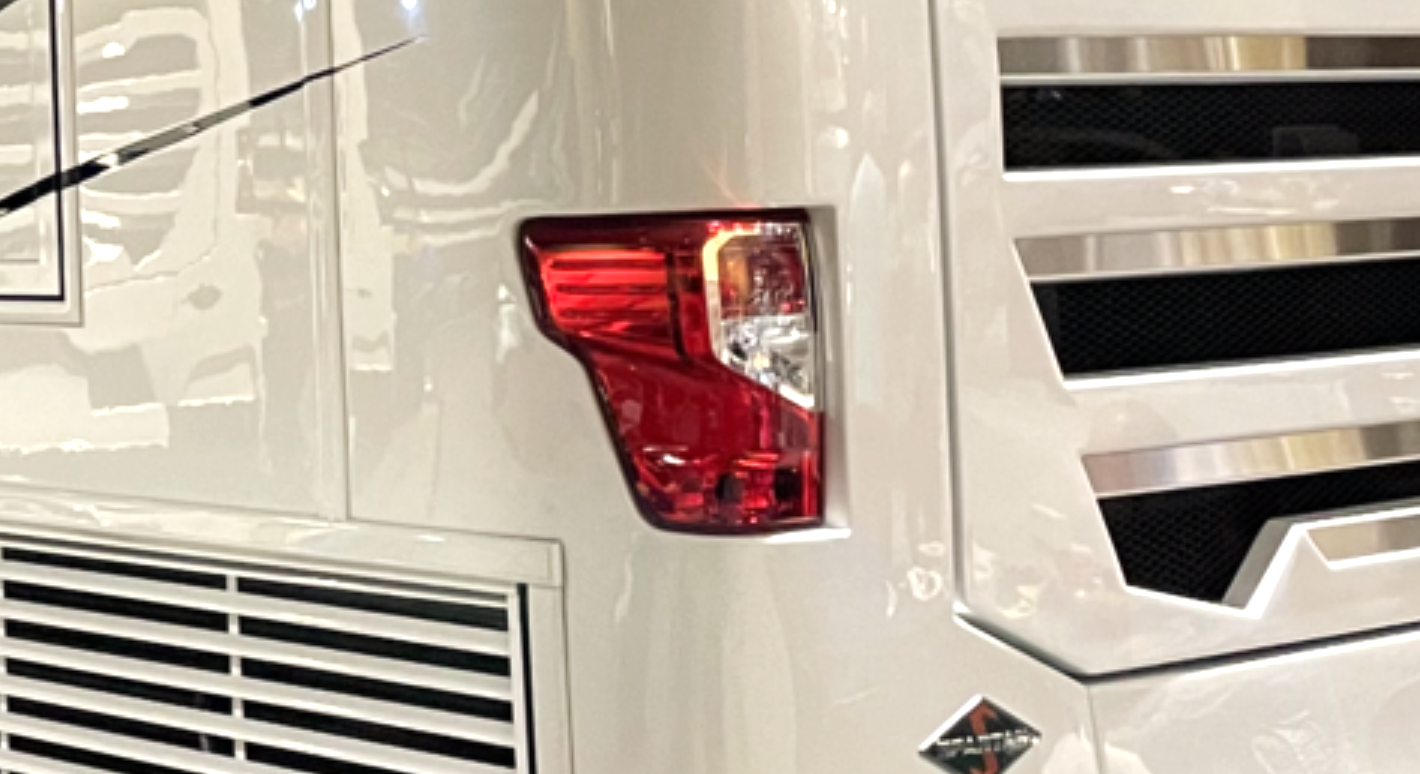One of my favorite things to do on a road trip or in a campground is identify where the headlights of a Class A RV came from. I’m not the only one, as there are online groups just for pointing out and identifying RV lights. Some manufacturers have moved away from robbing automaker parts bins, and instead equip their rigs with lights that look a little more bespoke. Still, there are some manufacturers that still look to the automotive industry to solve their lighting problems. And for our inaugural Parts Bin Puzzle, we’re going to look at a Class A RV: the 2023 Newmar Essex.
Some Quick History
The founding of Newmar took place in that crazy RV time of the 1960s. In 1968, Mahlon Miller worked at an RV manufacturer with his sales manager, Marvin Newcomer. The two left their jobs to build their own campers. They set their stakes in Nappanee, Indiana, a town known for its Amish and Mennonite woodworkers. A few years later, the company produced its first product, the 1971 Kountry Aire fifth-wheel. Check out what’s towing it in this promotional image! A Ford Centurion (more on those soon)! Back then, the Newmar Corporation says that it designed RVs based on customer input, not what the company thought was going to work best. Things would change a little in the 1980s after Newmar started building Class A motorhomes. Newmar claims and is sometimes credited with creating the first powered slide-outs in a motorhome. Expanding a camper’s interior volume using a slide-out was already a thing for decades at the time. And today, powered slides are commonplace on all kinds of trailers and RVs. But back then, slides required RV owners to manually expand them. Miller’s Newmar developed slides that opened and closed with the touch of a button, then applied them to their fifth wheel and later Class A RVs. Later, Newmar would decide to paint its RVs with swoopy graphics instead of using the decals that you’ll find some manufacturers use. That brings us to today, where as of 2012 the company no longer sells the fifth wheels that helped launch it. Instead, Newmar has gone all-in on Class A rigs, including later generations of its first motorhomes, the Dutch Star and Mountain Air. In 2003, the luxury Essex diesel pusher replaced the London Aire as Newmar’s flagship RV. Later, Newmar would lean even more into luxury with the King Aire, replacing the Essex as the flagship in the lineup.
Today’s Parts Bin Puzzle
At a starting price of $1,056,120, the Essex is more expensive than your house and it certainly looks the part. When you spend this much on an RV, you get the option to have the paint buffed to a mirror finish. And you can forget about particle boards pretending to be real wood. Newmar offers a variety of maple hardwood finishes and the RV is trimmed with cedar. And of course, you get loads of technology from flatscreens to sound systems and an induction cooktop. You even get stability control and adaptive cruise control in this massive rolling manor. Power comes from a 14.9-liter Cummins X15 turbodiesel straight six making 605 HP and 1,950 lb-ft torque. The engine itself weighs about 3,000 pounds. But you’re not here for an engine that weighs roughly two kei cars, what about those lights? Here’s what you get up front. And here’s what’s out back. Where did Newmar get these lights? I’ll give you a hint, if you combine both donor cars you don’t even hit a tenth of this million-dollar RV’s base price. We hope you love Parts Bin Puzzle. Each week, we plan to find a different vehicle that was assembled with parts from other manufacturers. These won’t be just RVs, but any car, truck, bus, motorcycle, or maybe even a boat. And the parts could be lights, door handles, vents; anything that sticks out. After you dear readers take your guesses, click here to reveal what parts bin these companies got their parts from.






